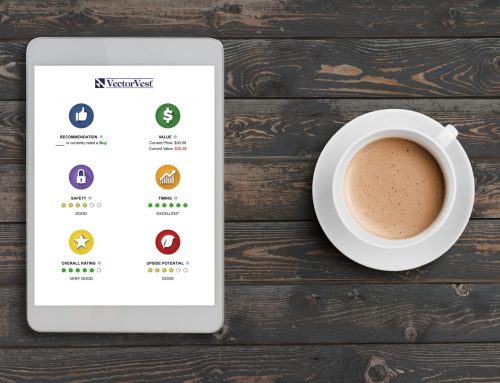The April inflation report provided a mixed bag of signals for the economy, leaving many investors wondering how these developments might influence their portfolios. With inflation cooling slightly to 3.4% annually but remaining above the Federal Reserve’s 2% target, the implications for the stock market are complex. Let’s delve into how these inflation trends could impact the market and provide actionable advice for non-trading professionals seeking to invest intelligently.
Inflation Trends and Fed Policy
In April, inflation slowed to 3.4% annually, down from 3.5% in March. Core inflation, which excludes volatile food and energy prices, also eased to 3.6% annually from 3.8%. Despite these positive signs, inflation remains above the Fed’s target, suggesting that high interest rates may persist for longer.
Fed Chair Jerome Powell emphasized the need for patience, indicating that the Fed might keep interest rates unchanged for the time being. As such, investors should anticipate a prolonged period of high interest rates.
Economic Growth and Consumer Behavior
Economic growth slowed to 1.6% annually in Q1 2024, and job growth cooled in April. Retail sales remained flat, indicating that consumers are feeling the pinch of higher prices and tightening their belts. This trend could signal a broader economic slowdown, impacting corporate earnings and, consequently, stock prices.
This environment typically benefits value stocks—companies with strong fundamentals and stable earnings—over growth stocks, which are more sensitive to interest rate hikes. Consider reallocating a portion of your portfolio to value-oriented and defensive sectors such as consumer staples, healthcare, and utilities. Additionally, look for companies with strong balance sheets and consistent cash flows, as they are better positioned to weather economic downturns.
A few companies to consider may include:
- Costco Wholesale Corporation (COST): They boast a low debt-to-equity ratio and consistently generate healthy free cash flow.
- Microsoft Corporation (MSFT): They have a fortress balance sheet with a massive cash hoard.
- Johnson & Johnson (JNJ): They have a long history of dividend payouts and consistent cash flow.
- Duke Energy Corporation (DUK): A major utility company with a strong track record of dividend payments and consistent cash flow generation.
Sector-Specific Impacts
Energy and Housing:
Gasoline prices rose by 2.8% in April, contributing significantly to the monthly inflation increase. Housing costs also remained high, with shelter inflation at 5.5% annually. These persistent costs suggest continued pressure on sectors like energy and real estate.
Energy stocks might see short-term gains due to rising oil prices. However, be cautious with real estate investments, as higher interest rates could dampen demand for housing. Look for energy companies with diversified operations, such as the ones mentioned above, and real estate firms focused on rental properties, which may benefit from higher rental yields.
Consumer Discretionary:
With food prices rising more slowly and some staples like bread, poultry, and eggs seeing year-over-year declines, consumers may have slightly more disposable income for discretionary spending. However, the overall cautious consumer sentiment suggests limited growth in this sector.
Focus on consumer discretionary stocks that offer essential goods and services, as these are more likely to maintain steady demand. Examples include discount retailers, (we mentioned Costco Wholesale Corporation above), which may benefit from consumers seeking value, and companies providing affordable leisure activities.
Producer Prices and Market Sentiment
The producer price index (PPI) for final demand rose 0.5% in April, exceeding expectations. Services prices jumped 0.6%, driven by higher costs in portfolio management fees, hotel/motel room costs, and trucking freight transportation. This higher-than-expected producer inflation has tempered expectations for a Fed rate cut in September.
Persistent inflationary pressures in the production pipeline suggest that businesses will continue facing higher input costs. Investors should look for companies that can pass these costs on to consumers without significantly impacting demand. Consider firms with strong pricing power in sectors like technology, branded consumer goods, and specialized industrials.
Integrating Stock Advisory Tools
Navigating the complexities of the stock market in the current economic climate can be challenging. Utilizing a stock advisory mobile app like VectorVest can provide valuable insights and recommendations tailored to your investment goals. The VectorVest app offers real-time market analysis, stock ratings, and personalized investment strategies, helping you make informed decisions.
Imagine having an app that alerts you to rising opportunities in value stocks or signals when to adjust your portfolio in response to economic shifts. By leveraging advanced algorithms and expert analysis, The VectorVest app helps you stay ahead of market trends and optimize your investments for better returns.
Additional Strategies for Smart Investing
While a stock advisory mobile app can be a powerful tool, it's not a magic bullet. Here are some additional strategies to consider while navigate this market:
- Focus on Long-Term Investing: Invest with a long-term horizon and focus on companies with strong fundamentals and growth potential.
- Embrace Value Investing: Look for stocks trading below their intrinsic value, offering the potential for significant upside as the market recovers.
- Dollar-Cost Averaging: Invest a fixed amount of money at regular intervals, regardless of the stock price. This helps to average out your cost per share over time and reduce the impact of market volatility.
Conclusion
The April inflation report highlights the ongoing challenges and opportunities within the stock market. With inflation moderating but still above target, and the Fed maintaining a cautious stance on interest rates, investors need to stay vigilant and adaptable. By focusing on value stocks, and companies with strong pricing power, you can position your portfolio to weather the economic uncertainties ahead.
Want These Types of Insights at Your Fingertips so You Can Win More Trades?
Use VectorVest to analyze any stock free. VectorVest is the only stock analysis tool and portfolio management system that analyzes, ranks and graphs over 18,000 stocks each day for value, safety, and timing and gives a clear buy, sell or hold rating on every stock, every day.
Before you invest, check VectorVest! Click here to ANALYZE ANY STOCK FREE and see our system in action!
What you should do next…
- Get our latest blogs delivered right to your inbox, subscribe to our newsletter.
- The market moves fast! Get our most current evaluation of this stock with our FREE stock analysis tool.
- Looking for stock picks? Not sure if now is the right time to buy/sell? For a limited time, enjoy the full benefits of a 30-day subscription to VectorVest for only $0.99 (usually up to $148/month) . Get access to our full list of screeners showcasing our top stock picks that tell you exactly what to buy, when to buy, and when to sell.











Leave A Comment